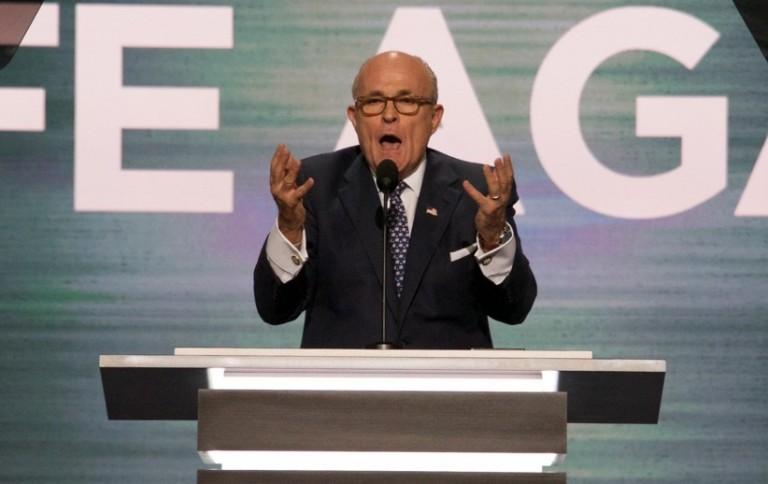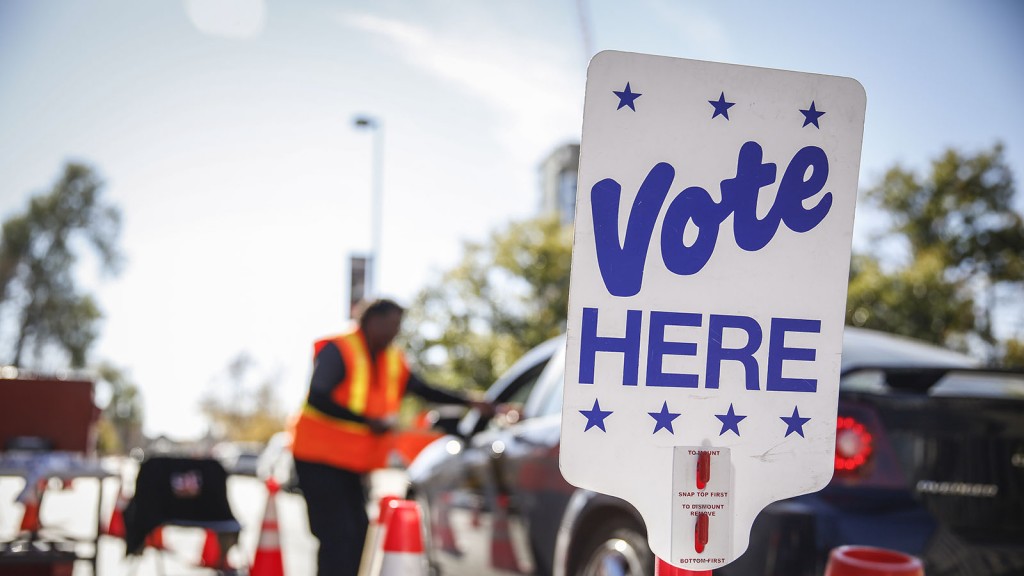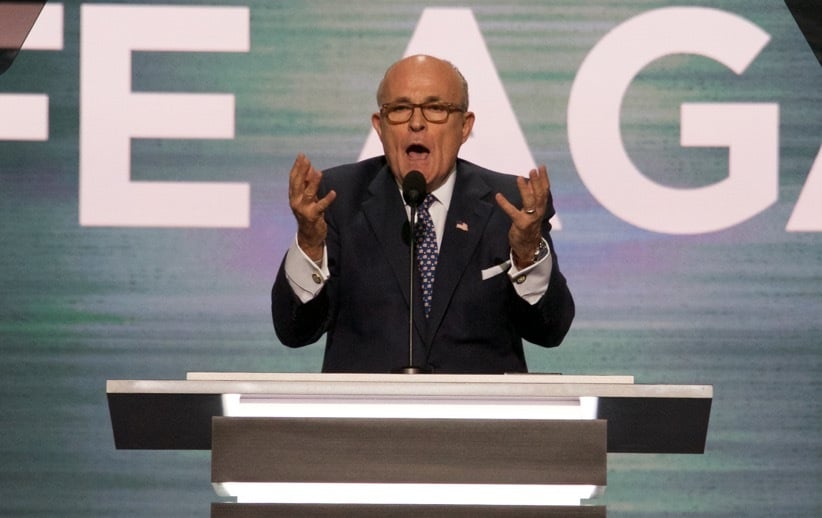Canadians don’t experience U.S. politics the way Americans do
But now and then, like when Rudy Giuliani’s on TV, it can feel uncomfortably close, writes John Geddes

Rudy Giuliani. (Photograph by Scott Feschuk)
Share

Responding with deep emotion to events in U.S. political life can feel awkward for a Canadian. Of course we’re intensely interested—the whole world is—but to claim a full portion of the investment of American citizens in their own history seems presumptuous. We’re next door. We can’t help hearing when the neighbours raise their voices, but that’s not the same as being in the family fray.
We’re not across an ocean, though. We’re just up the way. When things are going good in the States, we’re admiring, or maybe envious. The late John Kenneth Galbraith told me once in an interview that his father, a farmer and local Liberal party figure in southwestern Ontario, harboured a lifelong regret that Franklin D. Roosevelt didn’t happen to be a Canadian. I was born in 1961 and there were an unusual number of boys named John in the small-town Ontario classrooms where I went to school, and I don’t think many were named for Diefenbaker.
Despite our proximity, however, I don’t think Canadians can have been, on the whole, nearly as agonized as intelligent, sensitive, patriotic Americans were by the bizarre rise of Donald Trump, which made the campaign that led to today’s vote the dispiriting spectacle it was. Only a few times did I imagine I might be experiencing the full force of the debased quality he brought to the democratic process. Oddly, it was when Rudy Giuliani appeared on TV.

It’s because Giuliani occupies an odd niche in my memory. He was, and not only for Americans, a great figure in the weeks after the terrorist attacks on Sept. 11, 2001. Remember how inspiring he was then as mayor of New York? I was in his city couple of months later, covering something called the Canada Loves New York weekend for Maclean’s. The highlight was Giuliani speaking at a rally of Canadians at the old Roseland Ballroom, a classic Manhattan landmark.
Before he addressed the crowd of about 2,500, I managed to position myself where I could see what was going on backstage. There was Giuliani, slumped pale and motionless in a chair, looking nearly unconscious. He had been working almost nonstop since the attacks. I felt embarrassed that the Canadian organizers had imposed upon him. But then he was introduced, the crowd cheered, and he pulled himself upright, strode energetically to the podium, and delivered a fine speech.
It was a small moment, but I tucked it away as emblematic of something. Giuliani long ago made me feel foolish for that. Pick your point in his downward spiral. I thought any trace of admiration I felt for him was burned away when, at the Republican National Convention in 2008, he laughed derisively, in that chilling way, about Barack Obama’s experience as a community organizer. “Okay, okay,” Giuliani said, choking back his own vicious, inexplicable amusement, “maybe this is the first problem on his resumé.”
But I must have been wrong. Some meaningful residue of my recollection of the mayor who pulled himself up out of that chair in the fall of 2001 must have remained. Otherwise, I can’t explain how sick I felt every time he popped up on some TV panel to defend Trump’s indefensible words or deeds, or to groundlessly attack Clinton, or to decline to oppose outrages—right up to his refusal today to denounce a man who screamed for Clinton’s assassination at a Mike Pence rally.
Seeing him, the depths to which U.S. politics has been dragged would hit me in a different, unwelcome way—and I would feel sorry for Americans who must have experienced that visceral realization over and over during the past few months. I hope it gets better for them now.